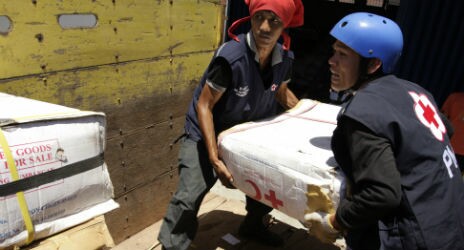
Drawing on its experience with the 2004 tsunami, Indonesia became a pioneer in using the IDRL Guidelines to develop a detailed legal and regulatory framework for the management of future international disaster assistance. This study, therefore, represented the first opportunity globally to assess such a well-developed national framework.
The report was commissioned after several years of collaboration between IFRC and PMI, which has included undertaking research on legal issues in disaster relief prior to and after the 2004 Aceh tsunami, and support to the authorities in the development of the new disaster management law (Law 24/2007) and the regulation and guideline on the role of international institutions and foreign NGOs.
The report considers the implementation of this framework with regard to response operations from two recent disasters in Indonesia; the West Sumatra earthquake in 2009, and the Yogyakarta Mount Merapi eruption in 2010. The report identifies a number of good practices that occurred during these two disasters, and identifies areas which could be further strengthened.
It is clear from this research that, although there are still some gaps in the framework and its implementation, Indonesia is one of the leading countries in the South East Asia region for proactively addressing common regulatory issues in international disaster cooperation. At a time when disasters are still clearly on the rise, IFRC and PMI will continue to engage with the government, UN and other key stakeholders in Indonesia to further strengthen the country’s legal preparedness for international disaster response.
The report is available here.